A Helpful Guide To Saving Water When You Have A Swimming Pool
If you've recently purchased a swimming pool, you probably haven't thought too much about water conservation. However, the fact is that if you aren't careful, you may end up using a lot more water than you actually need to. Given the water shortages faced by various communities around the world, it would be careless on your part to contribute to water wastage. So, in this post, we'll share with you all the do's and don'ts that will help you save water. Putting these tips into practice will allow you to be a responsible swimming pool owner who takes the environmental aspects of swimming pool ownership seriously. So, without any further delays, let's jump right in!
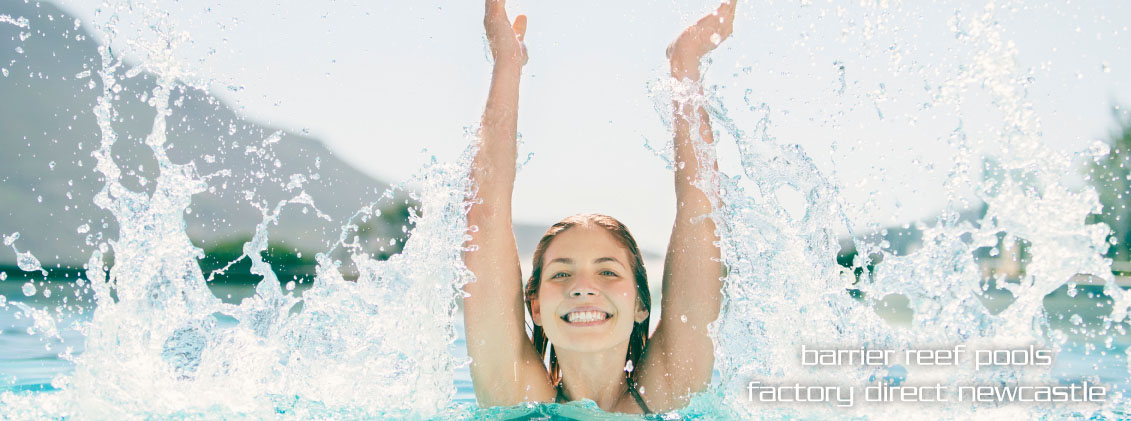
1. Invest In A High-Quality Pool Cover
During the summer months, when the sun is out in full force, rapid water evaporation can become a problem. Simply put, the more water evaporates, the more you’ll have to replenish it. This constant replenishment can lead to excess water use. That’s why it’s essential for you to take some steps to keep water evaporation at bay.
One of the best ways to do this is to buy a pool cover. Nowadays, there are countless options to choose from – some offering basic features at affordable prices and others offering feature-rich options at premium prices. We recommend spending a little more money on a feature-rich pool cover. Apart from keeping a check on water evaporation, it can also prevent the harmful effects of the sun’s UV rays on your swimming pool. High-end solar pool covers also have heat retention capabilities, which will guarantee warm water even during the winter months.
It’s best not to opt for a low-end pool cover simply because it’s affordable. Low-end covers are not as effective as their premium counterparts in preventing water evaporation. They also have limited thickness, which affects their durability. Ideally, you should go for a cover with a thickness of 12 – 16 millimetres. There are many options that are compatible with reels as well. These covers make it easy for users to set them up and remove them.
2. Take Care Of The Plumbing
The pipes and valves inside the swimming pool are prone to developing cracks over time. Even a minor crack can lead to a lot of water wastage. So, it’s vital that the plumbing inside the pool is in good shape. We recommend reaching out to your local plumbers for conducting periodic checks on the pool’s plumbing.
Periodic checks will be of immense help in identifying leaks and cracks within the swimming pool. Simply put, the quicker the problem is detected, the faster a solution can be developed for tackling the issue. Without timely intervention, even minor cracks can end up leaking a fair amount of water.
Apart from the plumbing, there’s also a chance that the pool’s structure cracks. When it comes to concrete pools, the chances of structural cracks are quite high. So, if you haven’t bought a pool yet and are planning to invest in one, we recommend opting for a fibreglass pool. Even though fibreglass pools are more affordable than concrete pools, they are more durable. If handled and maintained well, the chances of a fibreglass swimming pool developing structural cracks will be minimal.
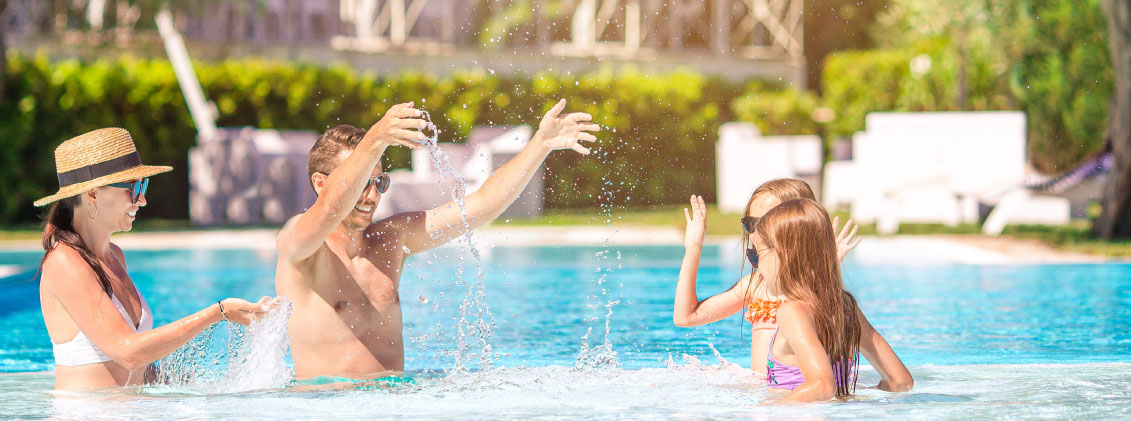
3. Keep The Filter Clean
How much water you manage to conserve has a lot to do with the condition of your pool filter. Over time, as your pool filter sees more and more action, it’s bound to become dirty. In such a scenario, you need to put in some effort to ensure that the filter is cleaned well. However, if you let things be, the filter will become excessively dirty, and the only way to clean it is to backwash it.
Backwashing is a process that involves eliminating all the dirt and grime accumulated inside your pool filter. Unfortunately, while this process is used by countless pool owners, the fact is that it wastes not just water but all the pool chemicals as well. The pool chemicals play an important role in maintaining pool water chemistry.
So, we recommend periodic cleaning of the pool filter. This will ensure that you don’t have to backwash it for cleaning it. If you’re unsure how to clean your pool filter, it’s best to get in touch with local pool maintenance professionals.
4. Minimise Pool Heater Use
Pool heaters are important equipment that can come in handy, particularly if you want to use your swimming pool through the winter months. However, pool heaters also have their drawbacks. One of their biggest cons is the fact that their heating capabilities may result in excess water evaporation.
Even if you have a pool cover in place, you won’t be able to stop water evaporating if you keep your pool heater on for extended periods. So, the best way to deal with this potential problem is to minimise your usage of the pool heater. Simply put, keep it on for a short time, switch it off, and feel the water’s temperature. If the temperature isn’t as high as you’d want it, use it for some more time until the desired temperature is achieved.
The point of this exercise is to heat the water only as much as necessary. If you overheat it, there’s a high chance that a part of the water will evaporate. You will also have to wait for some time for the water to cool down if you overheat it. After all, you don’t want yourself, your family or your guests to be subject to burns, right?
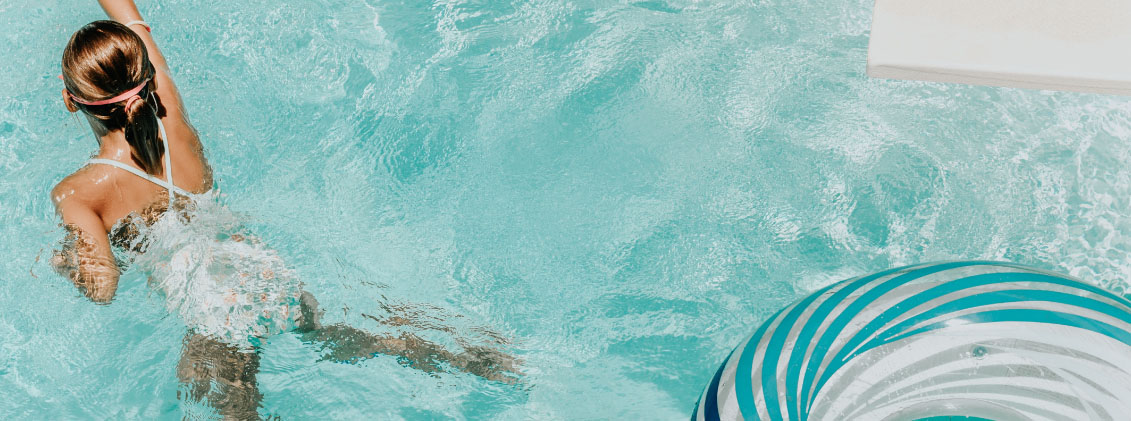
Conclusion
Acute water shortages are plaguing people across the world. The time is now to be responsible and take action within your capacity to make a positive change. Sure, if you save some water alone, you may not make much of a difference. But think about what can happen if every swimming pool owner does their best to save water. We hope that you put the tips we shared with you in this guide to practice and conserve as much water as possible for the sake of the environment.
A Helpful Guide To Saving Water When You Have A Swimming Pool
If you've recently purchased a swimming pool, you probably haven't thought too much about water conservation. However, the fact is that if you aren't careful, you may end up using a lot more water than you actually need to. Given the water shortages faced by various communities around the world, it would be careless on your part to contribute to water wastage. So, in this post, we'll share with you all the dos and don'ts that will help you save water. Putting these tips into practice will allow you to be a responsible swimming pool owner who takes the environmental aspects of swimming pool ownership seriously. So, without any further delays, let's jump right in!
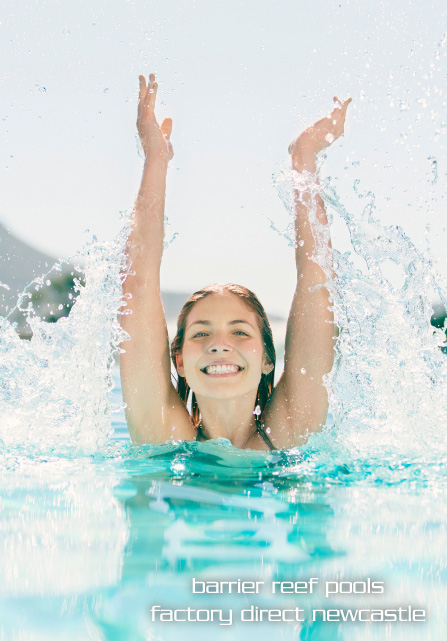
1. Invest In A High-Quality Pool Cover
During the summer months, when the sun is out in full force, rapid water evaporation can become a problem. Simply put, the more water evaporates, the more you’ll have to replenish it. This constant replenishment can lead to excess water use. That’s why it’s essential for you to take some steps to keep water evaporation at bay.
One of the best ways to do this is to buy a pool cover. Nowadays, there are countless options to choose from – some offering basic features at affordable prices and others offering feature-rich options at premium prices. We recommend spending a little more money on a feature-rich pool cover. Apart from keeping a check on water evaporation, it can also prevent the harmful effects of the sun’s UV rays on your swimming pool. High-end solar pool covers also have heat retention capabilities, which will guarantee warm water even during the winter months.
It’s best not to opt for a low-end pool cover simply because it’s affordable. Low-end covers are not as effective as their premium counterparts in preventing water evaporation. They also have limited thickness, which affects their durability. Ideally, you should go for a cover with a thickness of 12 – 16 millimetres. There are many options that are compatible with reels as well. These covers make it easy for users to set them up and remove them.
2. Take Care Of The Plumbing
The pipes and valves inside the swimming pool are prone to developing cracks over time. Even a minor crack can lead to a lot of water wastage. So, it’s vital that the plumbing inside the pool is in good shape. We recommend reaching out to your local plumbers for conducting periodic checks on the pool’s plumbing.
Periodic checks will be of immense help in identifying leaks and cracks within the swimming pool. Simply put, the quicker the problem is detected, the faster a solution can be developed for tackling the issue. Without timely intervention, even minor cracks can end up leaking a fair amount of water.
Apart from the plumbing, there’s also a chance that the pool’s structure cracks. When it comes to concrete pools, the chances of structural cracks are quite high. So, if you haven’t bought a pool yet and are planning to invest in one, we recommend opting for a fibreglass pool. Even though fibreglass pools are more affordable than concrete pools, they are more durable. If handled and maintained well, the chances of a fibreglass swimming pool developing structural cracks will be minimal.
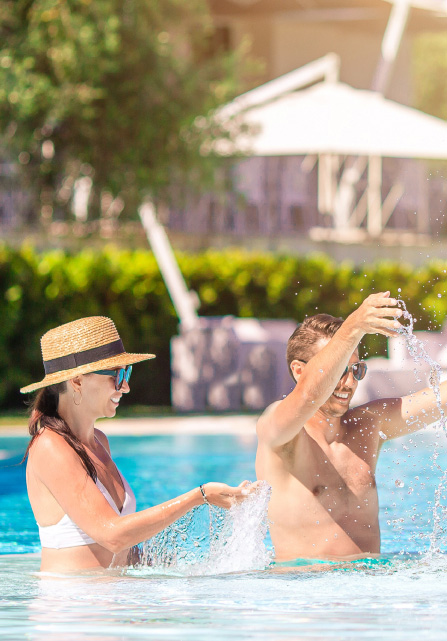
3. Keep The Filter Clean
How much water you manage to conserve has a lot to do with the condition of your pool filter. Over time, as your pool filter sees more and more action, it’s bound to become dirty. In such a scenario, you need to put in some effort to ensure that the filter is cleaned well. However, if you let things be, the filter will become excessively dirty, and the only way to clean it is to backwash it.
Backwashing is a process that involves eliminating all the dirt and grime accumulated inside your pool filter. Unfortunately, while this process is used by countless pool owners, the fact is that it wastes not just water but all the pool chemicals as well. The pool chemicals play an important role in maintaining pool water chemistry.
So, we recommend periodic cleaning of the pool filter. This will ensure that you don’t have to backwash it for cleaning it. If you’re unsure how to clean your pool filter, it’s best to get in touch with local pool maintenance professionals.
4. Minimise Pool Heater Use
Pool heaters are important equipment that can come in handy, particularly if you want to use your swimming pool through the winter months. However, pool heaters also have their drawbacks. One of their biggest cons is the fact that their heating capabilities may result in excess water evaporation.
Even if you have a pool cover in place, you won’t be able to stop water evaporating if you keep your pool heater on for extended periods. So, the best way to deal with this potential problem is to minimise your usage of the pool heater. Simply put, keep it on for a short time, switch it off, and feel the water’s temperature. If the temperature isn’t as high as you’d want it, use it for some more time until the desired temperature is achieved.
The point of this exercise is to heat the water only as much as necessary. If you overheat it, there’s a high chance that a part of the water will evaporate. You will also have to wait for some time for the water to cool down if you overheat it. After all, you don’t want yourself, your family or your guests to be subject to burns, right?
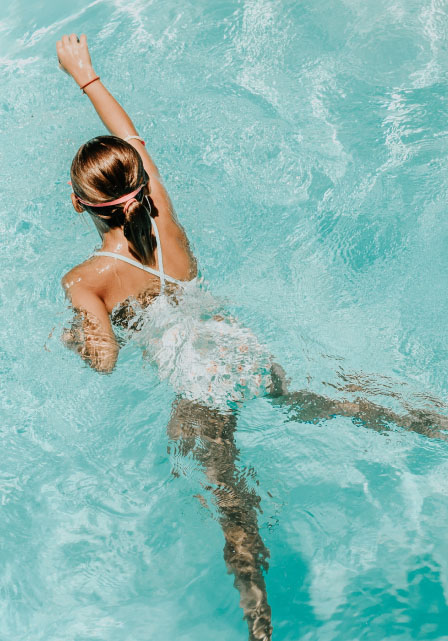
Conclusion
Acute water shortages are plaguing people across the world. The time is now to be responsible and take action within your capacity to make a positive change. Sure, if you save some water alone, you may not make much of a difference. But think about what can happen if every swimming pool owner does their best to save water. We hope that you put the tips we shared with you in this guide to practice and conserve as much water as possible for the sake of the environment.



